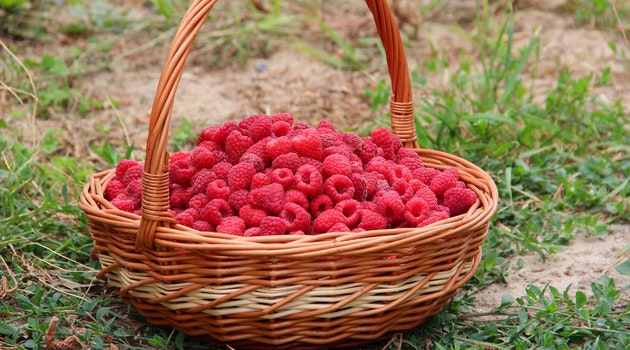Doesn’t it feel great when you see those bunch of bright red raspberries blooming in your yard? But how do you get that lustrous growth of those luscious gems in your garden? The secret is the proper care of raspberry bushes.
Raspberries are self-pollination in nature, which comes with two crops. This makes the raspberries one of the great fruits to grow and harvest in your home garden. To get the rich flavor, firmness, and good size of the berries, you need to take care of the bushes.
How to Grow Raspberry Bushes
From knowing how to trim raspberry bushes to taking the proper harvesting measurements, all contribute to top-notch care. Here is how can you look after the bushes:
Tip 1 – Start with selecting the proper place for your planting:
The best care is not possible if you are not cultivating it at the right place. This is why, before planting, you need to be very careful about picking the right place. Pick a place that gets enough sunlight. Your plants need full sunshine.
For the trellis creation of the ever-bearing raspberries, you need to ensure protective support. This will allow air circulation to prevent molds. Also, it minimizes damage sustained during high winds or stormy weather.
Ensure a trellis of known height. Keep the top of the trellis 1-1/2 feet wide to offer the canes’ proper support. You can use wood, wire, or twine for better support. Make sure that you are not planting the raspberries where you have planted other vegetables previously.
Tip 2 – Ensure the proper way of planting:
To get the best growth of your raspberry bushes, it is better to plant during the early spring. As your plants start arriving, you need to plant them quickly. If you cannot plant it quickly, ensure keeping the roots in a cool and moist place.
As you have bought the saplings, soak them for 3-6 hours before planting. Get rid of broken roots. While planting, dig holes whole, maintain 2′-3′ of distance, and spread the roots in the holes. You can shovel it back and amend the soil.
Apply water to each of the plants. Also, you need to add fertilizer while planting. Mulching is also important to keep the weeds down and increase the yielding of the crop.
Tip 3 – Watering the raspberry bushes:
Watering plays great importance for the raspberry bushes. While watering, you need to take special care of the young plants. As your young plant gets established, you need to ensure the proper watering.
Water the raspberry plants during the day time. You need to give them the 1″-2″ per week of the growing session. Also, ensure 4″ per week of the harvesting. As the plants are shallow-rooted, keep them properly moistures from the surface level.
Tip 4 – Pruning of the raspberry bushes:
If you want to have 2 crops in the first year, then it is better to leave unpruned. For achieving the fall crop, you need to opt for the mowing of all the canes down with 2′-3′. After the fall harvest during the spring or after winter, this is the best way of pruning.
For the annual pruning, you need to take all the measurements to ensure that the raspberries are becoming healthier and fruitful. Offer the proper distribution of light, air, and the proper application of pesticides.
Remove the second year cases after the fruiting in the spring. Do not wound the first year cane, which is going to be fruitful in the spring. For a larger fall crop, you need to mow the canes down to the 2″-3″ after the late fall or late winter harvest.
Tip 5 – Fertilizing the raspberry bushes:
During the first year of fertilizing, you need to add actual nitrogen. You can also add 10-10-10 nitrogen. Keep it 3″-4″ away from the base of the plant area, or it can do harm to the roots.
While opting for the annual fertilizing after the first year, you can repeat the process of adding the nitrogen fertilizer. You need to increase the amount from the second year. Spread the fertilizer 3″-4″ away from the base area of the plant.
 The Bottom Line on Growing Raspberry Bushes
The Bottom Line on Growing Raspberry Bushes
Raspberries are not that hard to take care of. However, you cannot go casual with regular care. To get those juicy and firm sweet raspberries, trimming and pruning the bushes is important. Also, don’t forget to add a good quality fertilizer.

